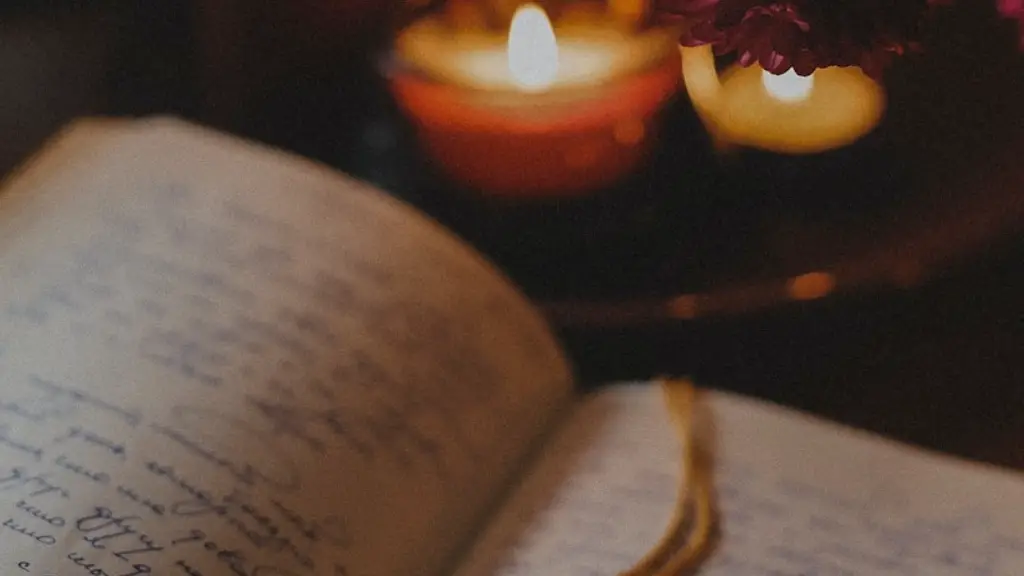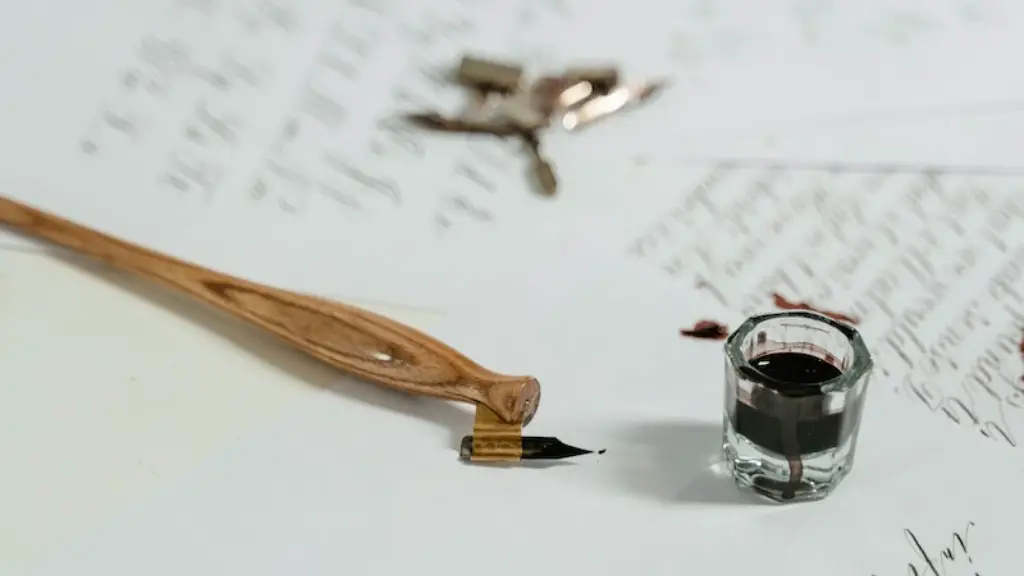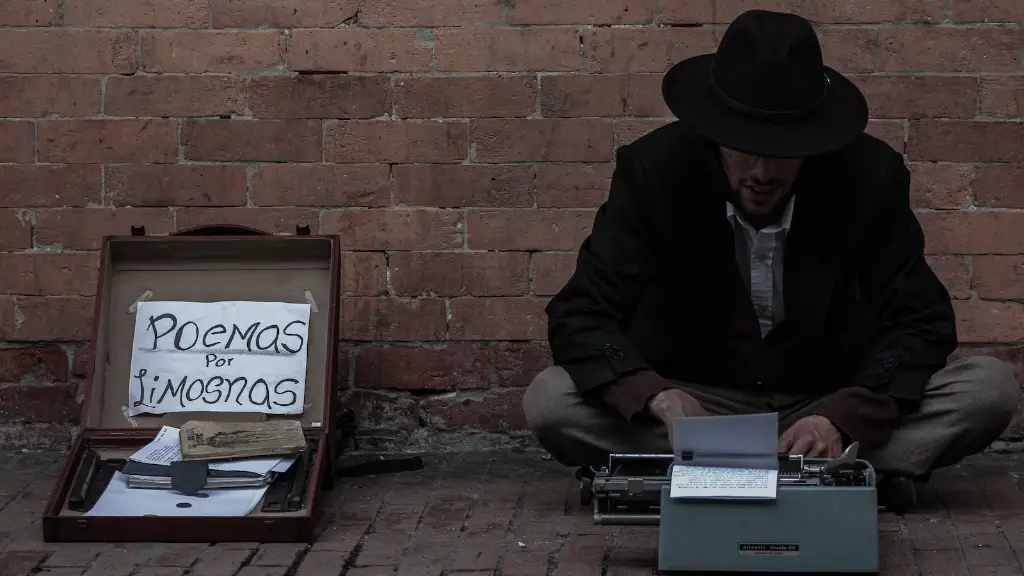Defining Poetry
Poetry is one of the most powerful and evocative forms of communication that exist. It is a type of literature that encompasses the use of figurative language, imagery, and rhythm to communicate feelings and ideas to an audience. Poetry has been around since ancient times, and it has been used to explore a variety of topics and themes such as love, loss, beauty, nature, society, and more. At its core, poetry is a way of expressing personal feelings and experiences, and it has the power to move people and to inspire them.
There are many different types of poetry, and each type has certain characteristics that distinguish it from other poetic forms. The most common types of poetry are sonnets, haikus, free verse, and blank verse. Sonnets are typically fourteen-line poems that have a specific rhyme scheme and meter, whereas haikus are much shorter and composed of three lines. Free verse poetry, on the other hand, lacks any sort of specific form and instead is composed of natural rhythms, imagery, and emotions. Finally, blank verse is composed of unrhymed lines of the same length that are often written in iambic pentameter.
Finding Inspiration
When it comes to writing poetry, the first challenge is usually finding inspiration. One of the best ways to come up with ideas is to observe your surroundings and take notes on what you see, hear, and experience. For example, a day spent in nature can offer a wealth of potential material, from the sound of cicadas and the smell of wet earth to the sight of a setting sun. Similarly, reading the work of other poets and authors can also be a great source of inspiration. You might even find that you are drawn to certain poetic devices or techniques that you can incorporate into your own writing.
It can also be very helpful to take time for reflection each day. Whether it is through journaling, meditation, or some other type of practice, it is important to relax and allow your mind to drift. Taking the time to focus on your thoughts and feelings can be the spark of inspiration that is needed to come up with a poem. Getting into the habit of reflecting on your experiences and emotions can help you to become inspired whenever you sit down to write.
Crafting Poetry
Once you have an idea for a poem, it is important to take time to craft it carefully. When you begin to write, it is useful to have an understanding of some of the common poetic devices and techniques that authors employ. For example, you can use alliteration, assonance, or rhymes to add a layer of complexity to your poem. Additionally, imagery is a great way to paint a vivid picture and to evoke feelings in the reader, while metaphor and simile can add depth to your poem.
When writing your poem, it is important to focus on creating something that is meaningful and that resonates with your audience. Poetry is a very personal form of expression, and it is important to be honest and authentic when expressing yourself. As you write, be sure to read your poem out loud to ensure that it reads well and that it conveys the emotions and ideas that you intend it to. Take your time with your poem and make sure that it communicates what it needs to before you are satisfied with it.
Editing and Sharing
Once you have completed your poem, it is important to spend time editing and revising it. Even the best poems need to be refined, and it is important to make sure that the poem is communicating your idea effectively and concisely. Editing can also be helpful in ensuring that your poem is structured correctly and that it follows the necessary layout for a particular kind of poem. Additionally, it is important to check your poem for typos and grammar errors to ensure that the poem is polished.
When you feel that your poem is ready, you can share it with other people. You can submit it to a journal or magazine, post it online, or even share it at an open mic. Seeing how other people respond to your poem can be a great way to grow and to learn as a poet. Additionally, it can be very validating to receive recognition and feedback from other people who appreciate your work.
Rewriting and Experimenting
Once you have shared your poem with other people, you can then start to revisit and refine it. It is important to take time to make changes to your poem and to experiment with different techniques or approaches. You might find that by seeing how other people have reacted to your poem, you can discover new ways of expressing yourself. You can also use your experience with writing one poem to help you to write another poem that builds upon the ideas in the original.
Even if you are satisfied with your poem, it is useful to take time to rewrite it and to rework it. Regularly taking time to revisit your poem and make changes to it can help you to refine it to be something truly special. Additionally, rewriting your poem can help you to develop as a poet as you learn more about the craft of writing poetry.
Seeking Feedback
One of the best ways to become a better poet is to seek feedback from others. It can be helpful to join a community of like-minded poets where you can exchange work and give and receive constructive criticism. Additionally, it can be useful to attend workshops or conferences, where you can receive guidance or advice from more experienced writers. Connecting with fellow poets can also be a great source of inspiration and can help you to develop your skills and knowledge.
Finally, it can be helpful to find a mentor who can provide guidance and criticism. This can be a very useful and supportive way of developing as a poet. Mentors can give their advice on manuscripts, and they can also offer personalized support and advice about the craft of writing poetry. Having someone to talk to who has a wealth of experience can be extremely beneficial.
Practicing Poetry
Writing poetry is a skill, and like any skill, it must be practiced. Even when you feel like you have mastered the craft, it is important to keep writing in order to maintain your skills and to keep your creativity flowing. Try to write regularly and to experiment with new approaches when it comes to crafting your poems. Additionally, it can be helpful to take part in writing exercises or prompts, which can help to improve your writing and to battle writer’s block.
Finally, be sure to take time to step back from your work and to observe it objectively. It is easy to get too attached to a poem, and it is important to be able to recognize when a poem needs to be changed or rewritten. Being able to take a step back and look at your poem with a critical eye can be the difference between an average poem and a masterpiece.



